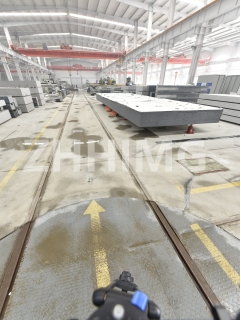In the manufacturing industry, machine tools are critical equipment that enable the production of precision components and parts. One important component of machine tools is the spindle, which carries the cutting tool and rotates at high speeds to perform machining operations. The spindle must be mounted on bearings that can support its weight and withstand the forces generated during machining.
Traditionally, ball bearings and roller bearings have been the most commonly used types of bearings in machine tools. However, with the increasing demand for higher precision and performance, new types of bearings have been developed, such as gas bearings. Gas bearings are non-contact bearings that use a thin film of gas, typically air or nitrogen, to support the rotating element. They offer several advantages over traditional bearings, such as lower friction, higher speed capability, and better damping.
One material that has been used successfully as a gas bearing material in machine tools is granite. Granite gas bearings have several unique properties that make them an attractive choice for high-performance applications. Granite is a natural material that is formed from cooling magma, and it has a very fine and uniform grain structure. This makes it highly resistant to wear and deformation, even under heavy loads and high speeds.
Granite gas bearings also have a very high stiffness-to-weight ratio, which means that they can support a large weight with minimal deflection. This is especially important in machine tools, where the spindle can weigh several hundred kilograms and must be mounted with high precision. In addition, granite has a very low coefficient of thermal expansion, which means that it is less likely to deform due to changes in temperature. This is critical in machine tools, where temperature variations can cause significant changes in the dimensions of the parts being machined.
The bearing capacity of granite gas bearings depends on several factors, such as the size and shape of the bearing, the operating conditions (speed, temperature, pressure), and the material properties of the granite. In general, granite gas bearings can support loads ranging from a few Newtons to several kilo-Newtons, depending on the size and design of the bearing. They can also operate at speeds up to several tens of thousands of revolutions per minute, which is much higher than traditional ball or roller bearings.
In conclusion, granite gas bearings are a promising technology for high-speed and high-precision applications in machine tools. They offer several advantages over traditional bearings, such as lower friction, higher speed capability, and better damping. The bearing capacity of granite gas bearings depends on several factors, but they can support high loads and operate at high speeds. With continued research and development, granite gas bearings may become a standard component in machine tools of the future.
Post time: Mar-28-2024

